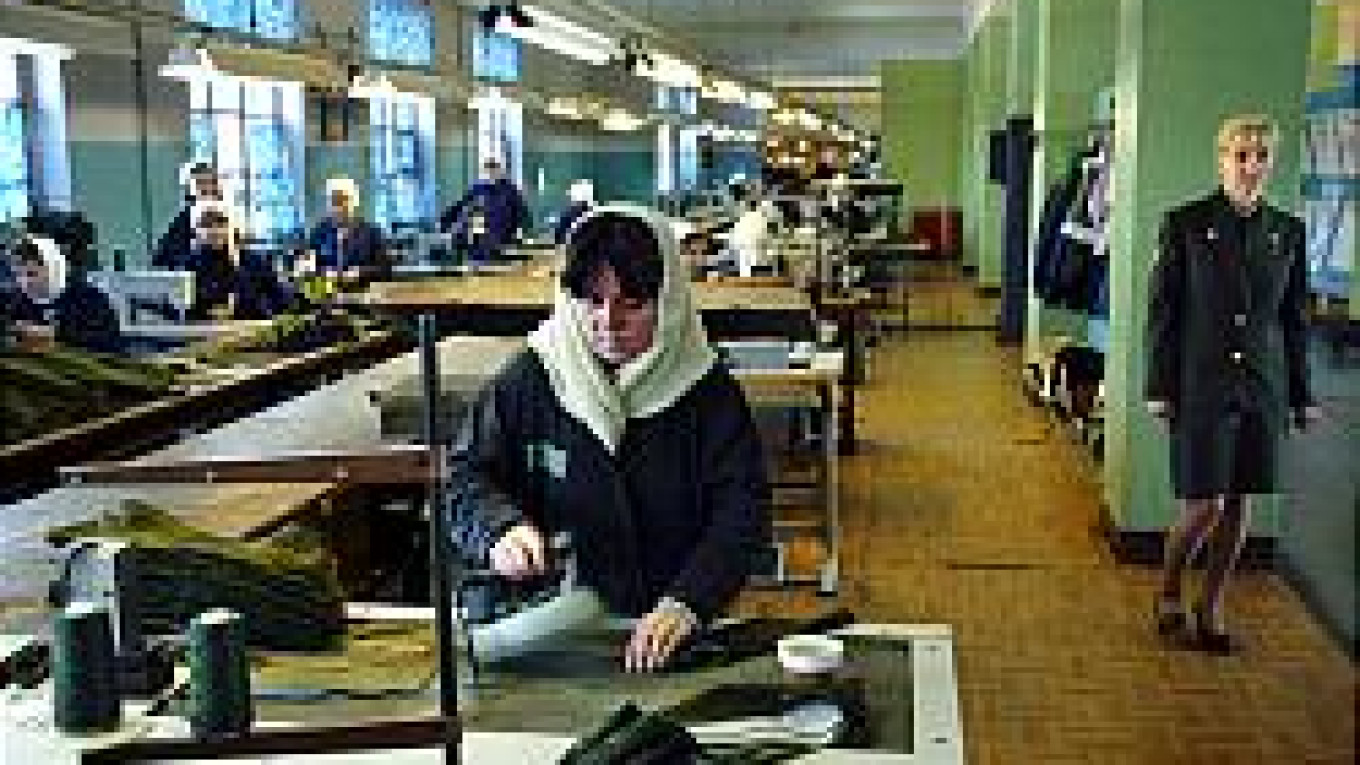Here, some 100 kilometers west of Moscow, many of the 1,200 or so inmates are serving time for murder, assault, robbery and drug dealing.
Violent crime, once connected almost exclusively with men, has been drawing an increasing number of women in recent years -- and reaching a level of cruelty that men rarely match, prison warden Lyubov Polyakova said. "When women fight, it's frightening," she said.
But the convicts at the Mozhaisk colony are either first-time offenders or those sentenced for lesser crimes, such as fraud or burglary.
The women are banned from wearing bright clothes -- a precaution against stoking additional aggression in the volatile environment -- but they may use makeup, which can be bought at a prison store with the money women earn working at a sewing shop.
They may attend a high school -- which many never had a chance to complete when they were younger -- or even earn a degree in social work from Moscow State Social University, and 44 inmates are currently enrolled. Another 54 are preparing to apply next year, Polyakova said.
The prison even has a so-called children's home -- a fenced-off territory overgrown with birch trees that houses 79 babies of inmates. A gate decorated with a smiling face separates the area from the prison grounds. During a recent visit by journalists, young mother Lena cradled her son, Vadik, in her arms, spoon-feeding him baby formula. The sternness that prison life seems to imprint on women's faces is momentarily erased and replaced with a loving smile.
"Not every colony has a child's home," said Nikolai Prokudin, a spokesman for the Justice Ministry's prison administration agency, known by its Russian acronym GUIN.
Typically, the children of female convicts are sent to orphanages and do not see their mothers for years, if ever.
Inside the barracks, the steel foot boards of bunk beds are decorated with white lace curtains.
And in an unusual demonstration of lenience, women are allowed a 15-day home leave each year. The right -- enshrined in law for first-time or petty offenders -- is subject to approval by the prison administration and is not granted automatically, Prokudin said. But the Mozhaisk colony administration usually insists that the women be allowed to leave.
Only alcoholics and inmates infected with tuberculosis or HIV are not permitted to go home -- expect for family funerals, and then they are accompanied by a guard, Polyakova said.
The first factory shift rises at 4:30 a.m. and heads to the sewing floor, where amid the rattle of the machines the inmates make military fatigues and toys -- plush red elephants, the only specks of bright color around. The women are paid 500 rubles (about $16) per month, which is deposited in their bank accounts or used for buying goods at the prison store.
A Message from The Moscow Times:
Dear readers,
We are facing unprecedented challenges. Russia's Prosecutor General's Office has designated The Moscow Times as an "undesirable" organization, criminalizing our work and putting our staff at risk of prosecution. This follows our earlier unjust labeling as a "foreign agent."
These actions are direct attempts to silence independent journalism in Russia. The authorities claim our work "discredits the decisions of the Russian leadership." We see things differently: we strive to provide accurate, unbiased reporting on Russia.
We, the journalists of The Moscow Times, refuse to be silenced. But to continue our work, we need your help.
Your support, no matter how small, makes a world of difference. If you can, please support us monthly starting from just $2. It's quick to set up, and every contribution makes a significant impact.
By supporting The Moscow Times, you're defending open, independent journalism in the face of repression. Thank you for standing with us.
Remind me later.


